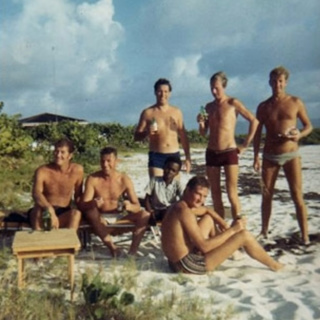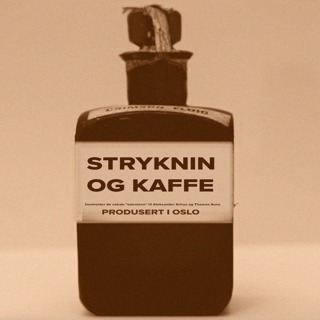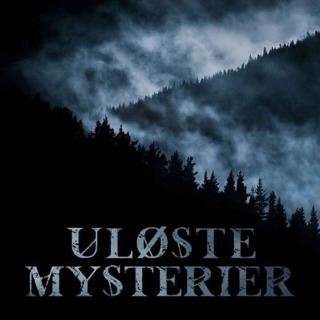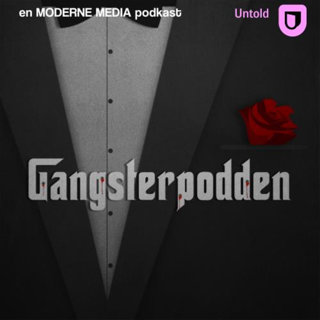
48. The Austrian Throne
There was no real problem with a woman inheriting the Austrian throne. But it could be a useful pretext for war by nations keen on advancing their own interests militarily. Frederick II of Prussia was quick to go to war - the Philosopher Prince became a Military King when he had the power to - and he seized the rich Austrian province of Silesia (which is actually Polish, but neither the Austrians nor the Prussians cared about that). Britain kept fighting the War of Jenkins' Ear against the Spanish, but then it got subsumed into the War of Austrian Succession, which it joined on the Austrian side as it had in the War of Spanish Succession. It did badly in the land war, under George II who, at Dettingen, became the last British sovereign to appear on a battlefield, and his younger son, the Duke of Cumberland, who proved pretty hopeless. They fought the French in America, chiefly through the Massachusetts colonists, and in India, through the East India Company. Most gains were handed back at the end of the fighting, except that Prussia hung on to Silesia. With British backing. Which annoyed Austria a lot, and that had consequences for the next war. A war that was bound to come, since this one had sorted out very little, apart from allowing Maria Theresa to mount the Austrian throne after all. Illustration: Empress Maria Theresa, portrait by Martin van Meytens, 1759. Public domain (published anywhere (or registered with the U.S. Copyright Office) before 1926 and public domain in the U.S.) Music: Bach Partita #2c by J Bu licensed under an Attribution-NonCommercial-No Derivatives (aka Music Sharing) 3.0 International License
16 Jul 202114min

47. Time for another war
Ah, those were the days. When Britain went to war over a sea captain who'd had an ear cut off. And taught the Spanish a thing or two. Except, of course, that Britain didn't go to war for that reason. And they taught Spain nothing. In fact, the Spanish taught the British a lesson, though we shall discover later that it wasn't listening. It took Britain eight years to decide to go to war with Spain, ostensibly over the outrage of Jenkins' Ear. That delay shows how little the war had to do with the atrocity. In reality, it was about bringing Walpole down, on the one hand, and looking for new business opportunities, on the other, with war as the means to break the stranglehold of competitor nations. Besides, despite a promising start with a famous if trivial victory for which all the Portobellos in Britain are called, Admiral Vernon went on to massive defeat at Cartagena. Though, oddly enough, that has a monument too, in a place that is certainly iconic, but in American rather than British history. Proving once more that history is full of ironies. Illustration: Robert Jenkins hands a dismissive Prime Minister Robert Walpole his severed ear, as his companions lift off his wig to show the scar; one of Walpole's associates displays total indifference, preferring to converse with a lady. Satirical Cartoon, 1738, British Museum, London. Public domain Music: Bach Partita #2c by J Bu licensed under an Attribution-NonCommercial-No Derivatives (aka Music Sharing) 3.0 International License
9 Jul 202114min

46. Freedom
Britain, its idealists claimed, was launching an Empire of Freedom. The reality, sadly, was rather different. Europeans, with Brits in the forefront, had developed a love of tobacco, and above all a sweet tooth. They wanted sugar for their cakes and pastries, but above all for their coffee, chocolate and, that new British institution, tea. But sugar production requires backbreaking work under terrible conditions. This was work, and in conditions of heat, humidity and disease, few Europeans felt they could handle. And so Africans were brought in to do it instead. Not voluntarily. The British Empire of Freedom was built, and from early in its existence, on a foundation of slavery. Illustration: William Clark, Slaves cutting sugar cane. Held and digitised by the British Library, and uploaded to Flickr Commons. Music: Bach Partita #2c by J Bu licensed under an Attribution-NonCommercial-No Derivatives (aka Music Sharing) 3.0 International License
3 Jul 202114min

45. Robinocracy
'Robin', or Robert Walpole, Britain's first and longest-serving Prime Minister, came to be known as 'Cock Robin'. Possibly because people around him felt his success had made him cocky. The regime over which he presided was termed the 'Robinocracy'. It was an era of peace, stability and improving government finances. Not enough to save him ultimately from his adversaries, dissident Whigs such as George Grenville and William Pitt the Elder - in other words, members of his own party. He'd given them peace, but they wanted war. Specifically, they wanted Britain's voice to be heard on the world stage. We're on the verge of Britain becoming an imperial power, which we'll be finding out more about in coming episodes. But to make that possible we needed to be a lot more warlike than Cock Robin wanted. So the Robinocracy had to end. Illustration: The Stature of a Great Man or the English Colossus". Satire of Sir Robert Wapole alluding to his "extreme reluctance to engage in war...to resist the aggressions of Spain and France". Caption reads: "Why Man, he doth bestride of narrow World Like a Colossus, and we petty Men – Walk under his huge Legs, & peep about To find ourselves, dishonourable Graves Men at some times are Masters of their fates: The fault, dear P––y is not in our stars, But in ourselves, that we are Underlings —Shakespear [sic]". Public domain picture, from the United States Library of Congress's Prints and Photographs division under the digital ID cph.3b03411. Music: Bach Partita #2c by J Bu licensed under an Attribution-NonCommercial-No Derivatives (aka Music Sharing) 3.0 International License
27 Jun 202110min

44. The Prime Minister
The title 'Prime Minister' used to be a term of abuse. To be honest, depending on the holder of the office, plenty of people would maintain it still is. The first person of whom it was used as a real title in Britain, even if still not officially, was Robert Walpole. We've already met him, as a man who did rather well out of the South Sea Bubble, if more by good luck than by good judgement. That and the support he offered some powerful people in the wake of the scandal around the bubble, above all the king himself, helped him into office: he was seen as a safe pair of hands. A reputation he did much to nurture and generally deserved. Illustration: Robert Walpole, First Earl of Oxford, by Arthur Pond, 1742 National Portrait Gallery 6085 Music: Bach Partita #2c by J Bu licensed under an Attribution-NonCommercial-No Derivatives (aka Music Sharing) 3.0 International License
22 Jun 202111min

43. Bubble
Not all bubbles are all that bubbly. The South Sea Bubble made some people a lot of money - such as Isaac Newton, the physicist but also skilful financier - or a colossal amount of money - such as Thomas Guy, who founded Guy's Hospital, still one of England's great teaching hospitals. But it also ruined a lot of others. Rather like every bubble, down to the present day. This bubble also opened the door for a man who might sort the fallout so competently that not too many in the English elite would suffer badly. Which would make him Britain's first Prime Minister. Truly proving that even a financial disaster could make the fortune of some people... Illustration: Edward Matthew Ward, The South Sea Bubble, a Scene in ‘’Change Alley in 1720, Edward Matthew Ward. Presented by Robert Vernon 1847. Photo: Tate. Tate Reference: N00432. Creative Commons CC-BY-NC-ND (3.0 Unported) Music: Bach Partita #2c by J Bu licensed under an Attribution-NonCommercial-No Derivatives (aka Music Sharing) 3.0 International License
17 Jun 202110min

42. The business of empire is business
England in the early eighteenth century was undergoing great changes. London was Europe's biggest city. And the country was rapidly emerging as a major business centre, displacing the Netherlands from that position. It had a thriving stock exchange and huge overseas trade, led by the venerable East India company. It was also becoming a far livelier place in politics and in thought, with more tolerance for unorthodox ideas and political opposition than most countries. Though, as the experience of Daniel Defoe showed, there were still strict limits to just how far tolerance went. Limited or not, political dynamism, and above all the strong economy, would be the springboard for British imperial dominance in the future. Illustration: The Royal Exchange in London in the late eighteenth century By Thomas Bowles - http://commons.wikimedia.org/wiki/Image:RoyalExchangeThomasBowles1751.jpg, Public Domain, https://commons.wikimedia.org/w/index.php?curid=2360480 Music: Bach Partita #2c by J Bu licensed under an Attribution-NonCommercial-No Derivatives (aka Music Sharing) 3.0 International License
12 Jun 202114min

41. Sex and Sickness
Lady Mary Wortley Montagu was an extraordinary woman, both in her personality and in her contribution to the world, specifically in medicine. This episode looks at both aspects, trying to pick out the complex character behind her image, in particular her possibly ambivalent and certainly far from obvious sexuality. Then, however, it looks at how she became a leading benefactor to humanity, by introducing to England, and through England to Europe, the life-saving procedure of immunising against smallpox by inoculation with the disease itself. That makes this episode not entirely suitable for anti-vaxxers, especially as it ends with a quick look at how her campaign led to the launching of actual vaccination, as opposed to the variolation she promoted. The anti-vaxxers won't like hearing that the procedure has saved hundreds of millions of lives. Illustration: William Powell Frith, Alexander Pope is said to have declared his love to Lady Mary, who simply found it uproariously funny, offending him deeply and turning him into an open enemy. The painting dates from 1852, so it’s a later retrospective and imaginary depiction, but more fun than the contemporary and more serious portraits, which is why I chose it. It’s in the library at Otago, New Zealand, and the image is in the public domain. Music: Bach Partita #2c by J Bu licensed under an Attribution-NonCommercial-No Derivatives (aka Music Sharing) 3.0 International License
7 Jun 202114min





















